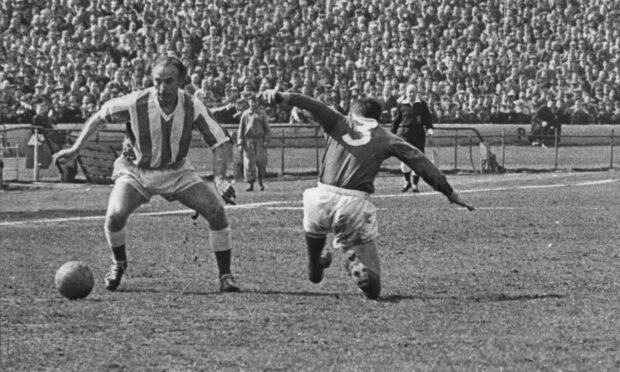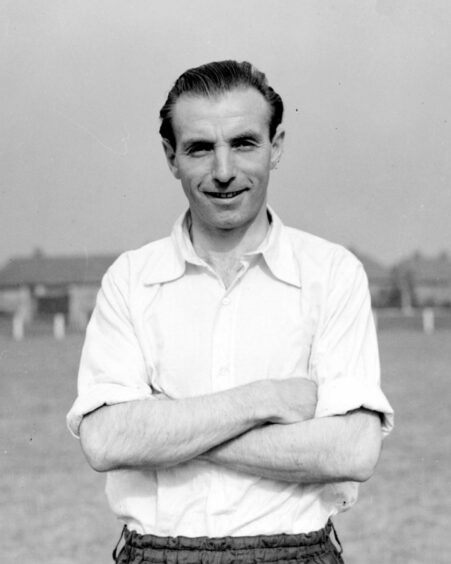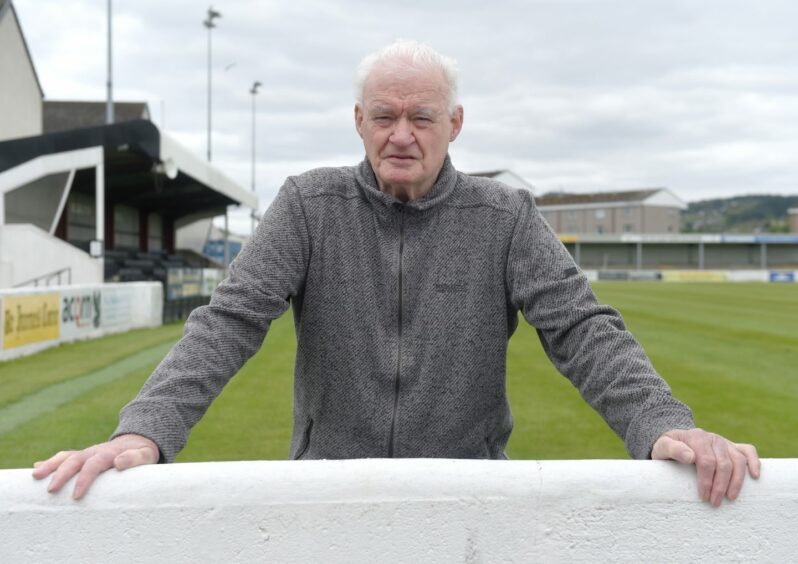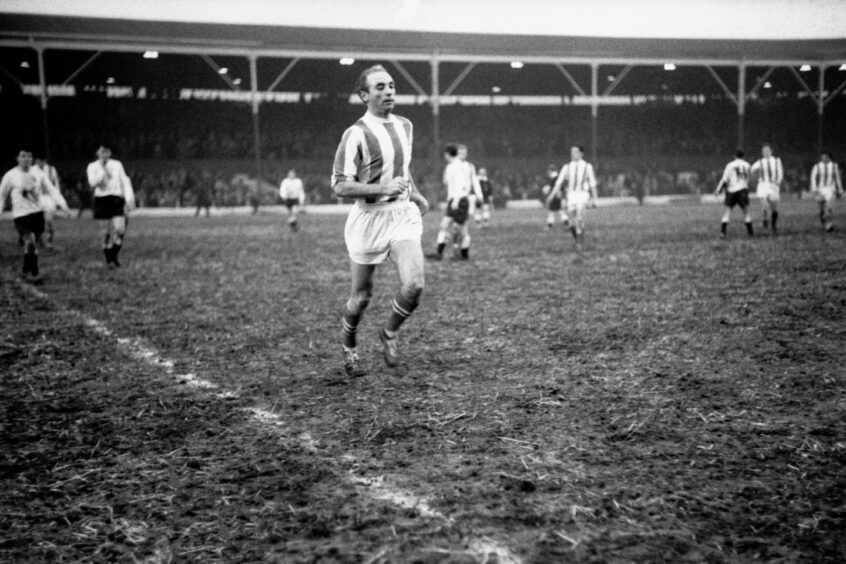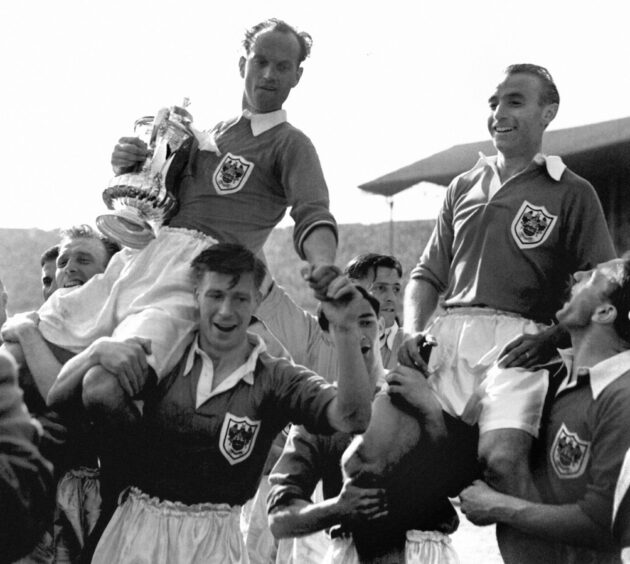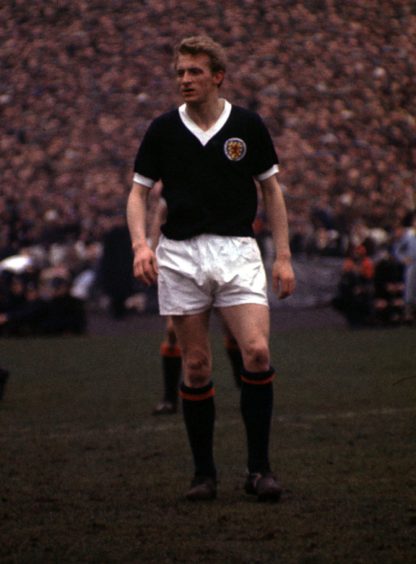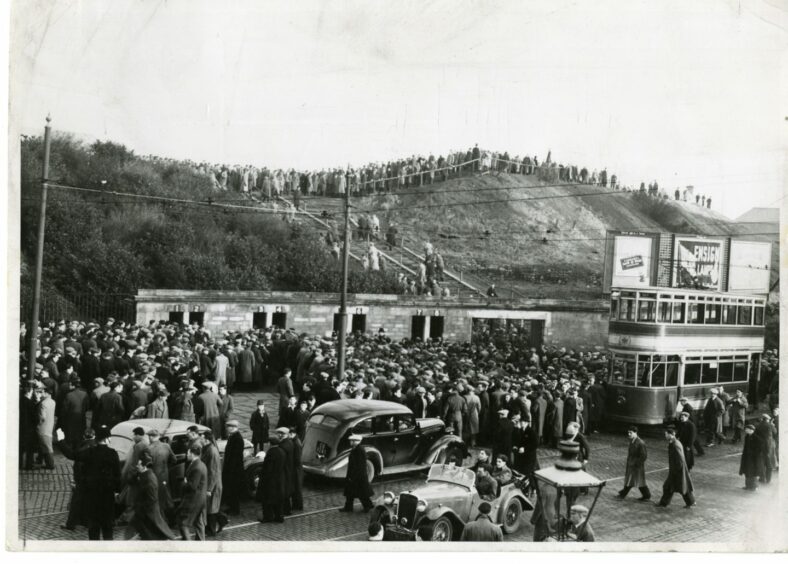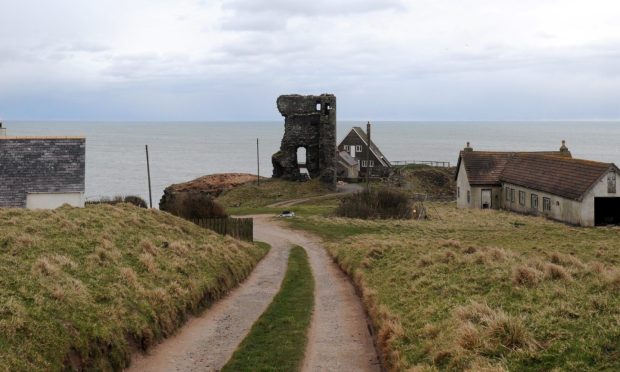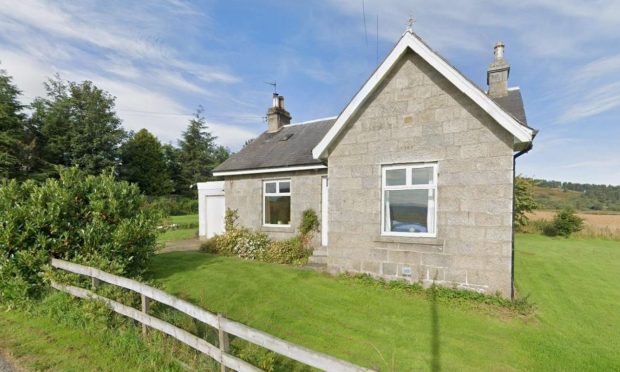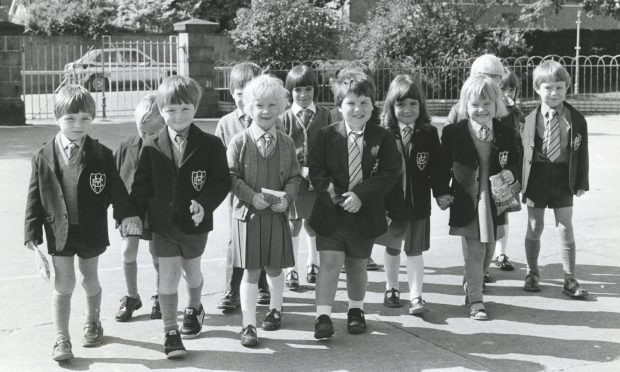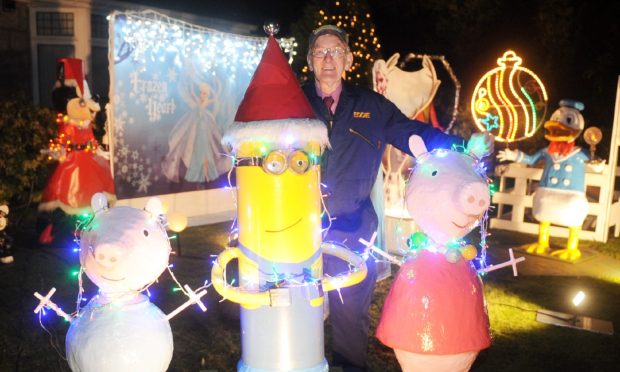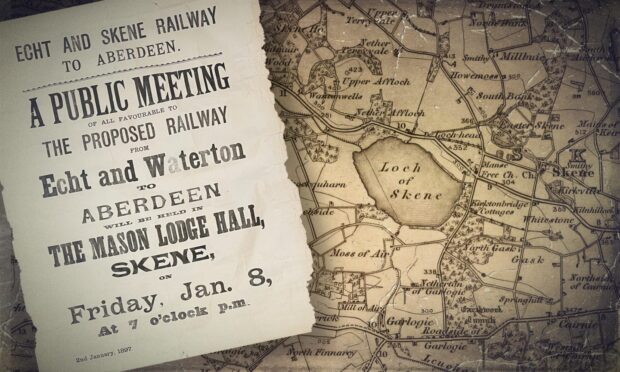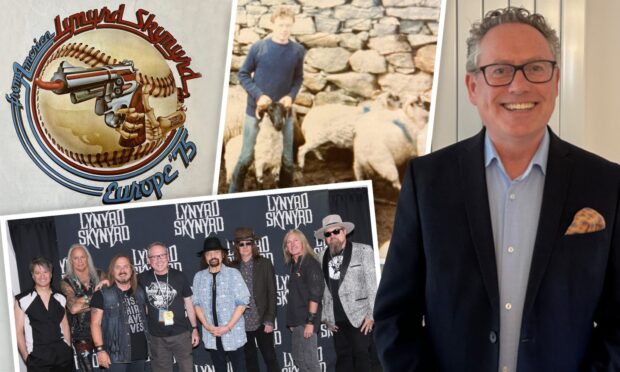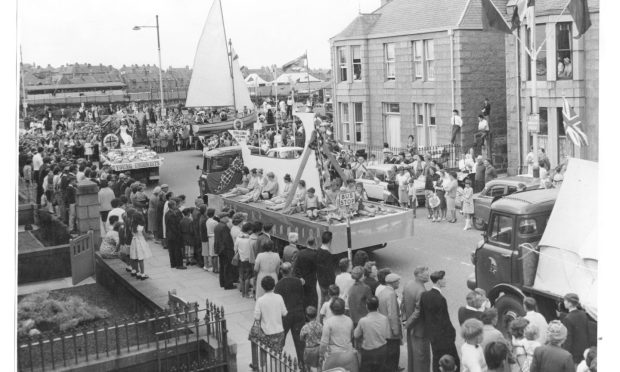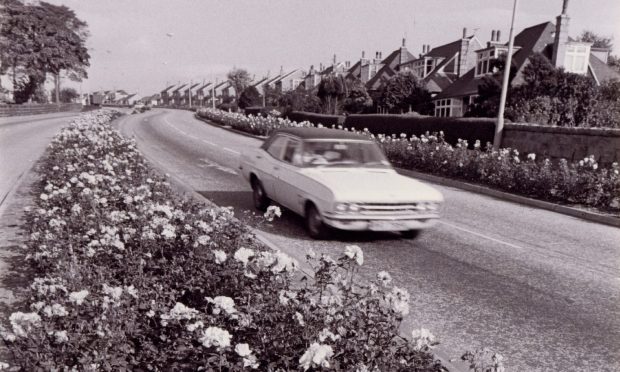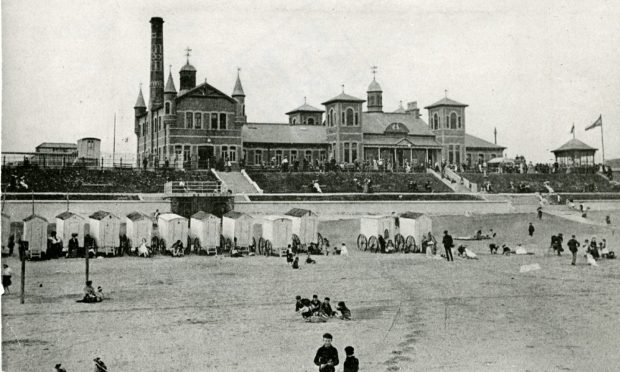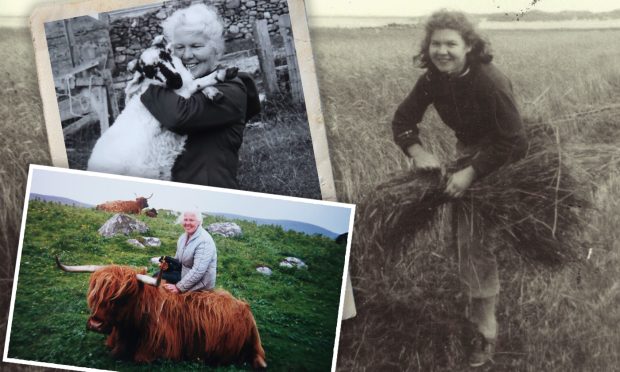Here’s a good quiz question for these long winter nights: which footballer links Clachnacuddin FC with the prestigious Ballon d’Or?
And the answer, since it’s pretty unlikely that you will guess it, is Sir Stanley Matthews, whose stellar career for club and country also included a once-in-a-lifetime appearance at Clach’s Grant Park in 1945.
It’s 65 years this month since the wing wizard became the first-ever winner of the Golden Ball, a prize that has subsequently been claimed by many of the biggest names in the sport, including George Best, Bobby Charlton, Denis Law – who remains the only Scot to win it – Johan Cruyff, Franz Beckenbauer, Cristiano Ronaldo and Lionel Messi.
Astonishingly, Matthews was 41 when he was the inaugural recipient of the accolade.
But just as remarkably, more than a decade earlier, The Magician had paraded his tricks at a packed little stadium in the north of Scotland.
And those who were present never forgot it.
George Rodgers, who was a ball boy at the showpiece occasion – which attracted a remarkable 7,500 spectators – told me about his memories of watching the talismanic Matthews, his illustrious England compatriot, Stan Mortensen, and Scotland’s Bill Shankly, the fabled Liverpool manager, who were all involved in the action in the Highland capital.
Stanley Matthews won first-ever Ballon d’Or
And the Invernessian, who was just nine when the war in Europe ended, outlined the details of the contest, which was held on Saturday May 19 1945 between an RAF National XI and a Queen’s Park select, with the former emerging as emphatic 5-1 winners.
The forces team featured several stellar luminaries, but nobody glittered more than the maestro who later helped Blackpool win the FA Cup with a magnificent individual performance in the Matthews Final of 1953.
In 1956 Stanley Matthews won the inaugural Ballon d’Or, the prize given to the best European footballer every year, and, irrespective of his career being interrupted by the Second World War, amassed 54 caps for England and participated in two World Cup, in 1950 and 1954.
Mr Rodgers said: “It was such an exciting afternoon and to be there on the touchline and watching Stanley Matthews was a huge thrill.
“He was quick, he could do anything with a football, and he was so imaginative and entertaining and full of tricks that it was hardly surprising such a huge crowd came to watch him and cheer him to the rafters.
We watched and marvelled – and we sang and cheered every time Matthews and Mortensen were on the ball.”
George Rodgers
“A few of the RAF lads were based up in the north of Scotland, and that helps explain why the game was held at Grant Street Park, but there was a wonderful atmosphere around the town, given the war was finally over, and everybody was still on a high from the VE Day celebrations.
“The result of the match wasn’t important, but to be there to watch Matthews, and Stan Mortensen and other big names such as Bill Shankly and (former Scotland manager) Bobby Brown was a wonderful thing for the audience.
“They packed into every corner of the ground and it wouldn’t be allowed today with the health and safety regulations.
“But we watched and marvelled – and we sang and cheered every time Matthews and Mortensen were on the ball.”
Mr Rodgers, whose father, also George, was a distinguished footballer in his own right and paraded his talents with London powerhouses Chelsea, was too young to have early memories of blackouts and bomb shelters but vividly recalled the “big bonfire in front of our street” on VE Day.
And by the stage the top-flight players arrived in Inverness, he was already passionate about the sport and might have followed in his dad’s footsteps to England if he hadn’t been so dedicated to his roots.
He added: “I grew up in and around the Clach club and although I served with the RAF in Egypt, and was offered the chance to sign for Newcastle, I couldn’t wait to return to Inverness and I got married at 22.
‘There was only one club for me’
“We won a lot of medals in the years after that and I was made a few offers by other Highland League teams, but Clach was the club for me.
“I was approached by Inverness Thistle and I suppose I could have earned more in one season than I did in 15 at Grant Park.
“But the money wasn’t the reason why I played football. I loved the game.
“And I have always cherished the time Stanley Matthews showed us just how good he was in our very own stadium.”
The Englishman was one of the first footballers to be knighted, and achieved many records during his brilliant career, but his shining moment came in the dramatic climax to the 1953 FA Cup final at Wembley.
He and his colleagues were just 20 minutes away from defeat with his team 3-1 down to Bolton.
But his dazzling footwork carved out the last two goals of a hat-trick for Stan Mortensen, and Matthews subsequently set up the winner for Bill Perry with 20 seconds left of a pulsating contest.
Despite Mortensen’s treble, it was a game that has always been remembered as the Matthews final.
At Matthews’ 80th birthday celebrations in 1995 – he died in 2000 – the former England captain Jimmy Armfield praised his sublime skills and unstinting sportsmanship.
A crowd-pleaser for a generation
He said: “You could kick him and you could do anything with him and he would never retaliate because he wanted to concentrate on his football.
“He was the perfect example of self-discipline. I can never remember a referee speaking to him once – and he didn’t speak to them, either.”
Matthews was a crowd-pleaser to generations and helped attract what remains a British record crowd of 149,547 fans to Hampden Park in Glasgow in 1937.
But, astonishingly for those who follow football these days, he never earned more than £50 a week, plus £25-a-game bonus.
Bill Shankly, who also graced the turf at Grant Street Park, was a coruscating force of nature and a hero to the Kop.
The Scot changed the whole ethos at Liverpool, combining superb man-management and tactical acumen with such immortal quotes as: “Football’s not a matter of life and death – it’s much more important than that”.
Between his appointment at Anfield in 1959 and his retirement 15 years later, he transformed a struggling club, stuck in the lower ranks of the Second Division, into the finest team of its generation, winning three First Division titles, two FA Cups, a Second Division title and the Uefa Cup.
While he was in charge at Huddersfield, his infectious personality and knack of developing outstanding youngsters, such as Denis Law in the days before he joined Manchester United, got him noticed by bigger clubs.
In November 1959 Shankly was approached by two men with a proposition that changed everything in English football for the next 30 years.
They were the Liverpool chairman, Tom Williams, and director Harry Latham.
“How would you like to manage the best club in the country?” asked Williams.
“Why?”, replied Shankly. “Is Matt Busby packing it in?”
Just a few days later, he was unveiled as Liverpool’s new manager.
These matches were played with joy
There was no shortage of leading players who were prepared to show their skills around the north-east of Scotland and the Highlands during the last 12 months of the war in Europe.
A British Army team launched an extensive tour at Dens Park, Dundee, on August 5 1944 and subsequently embarked on a taxing schedule to a variety of communities before they finished their endeavours in Inverness.
George Graham, secretary of the SFA, arranged the fixtures and the team included the likes of future Manchester United manager Matt Busby, accompanied by other internationalists, such as Archie McAulay, Jock Kirton and Frank Swift.
The Army personnel participated in the following programme:
- August 5 v Dundee, on behalf of Lord Provost’s Fund for War Charities
- August 7 v Aberdeen, for the Army Welfare Fund
- August 8 v Fraserburgh
- August 9 v Elgin
- August 10 v Fort George
- August 12 v Inverness
The last four games were organised to benefit prisoners of war funds.
And, once the conflict had ended, other matches were arranged as part of the celebrations in Britain, culminating in the Victory Internationals of 1946.
- A new book, recounting 136 years of history of Clachnacuddin Football Club (1885/86-2021) is on sale in Inverness at Waterstones, Eastgate Centre. Mail Boxes, Church Street. Charlie’s Cafe, Margaret Street. Rodgers Shop, Grant Street and Mini Mart, Benula Road. More information can be obtained by emailing billy.corbett@hotmail.co.uk
More like this:
Aberdeen’s 80s heroes could have lined up in Escape to Victory
The forgotten story of how Dutch maestro Johan Cruyff almost played for Aberdeen
Aberdeen great Martin Buchan recalls turbulent years at Manchester United
